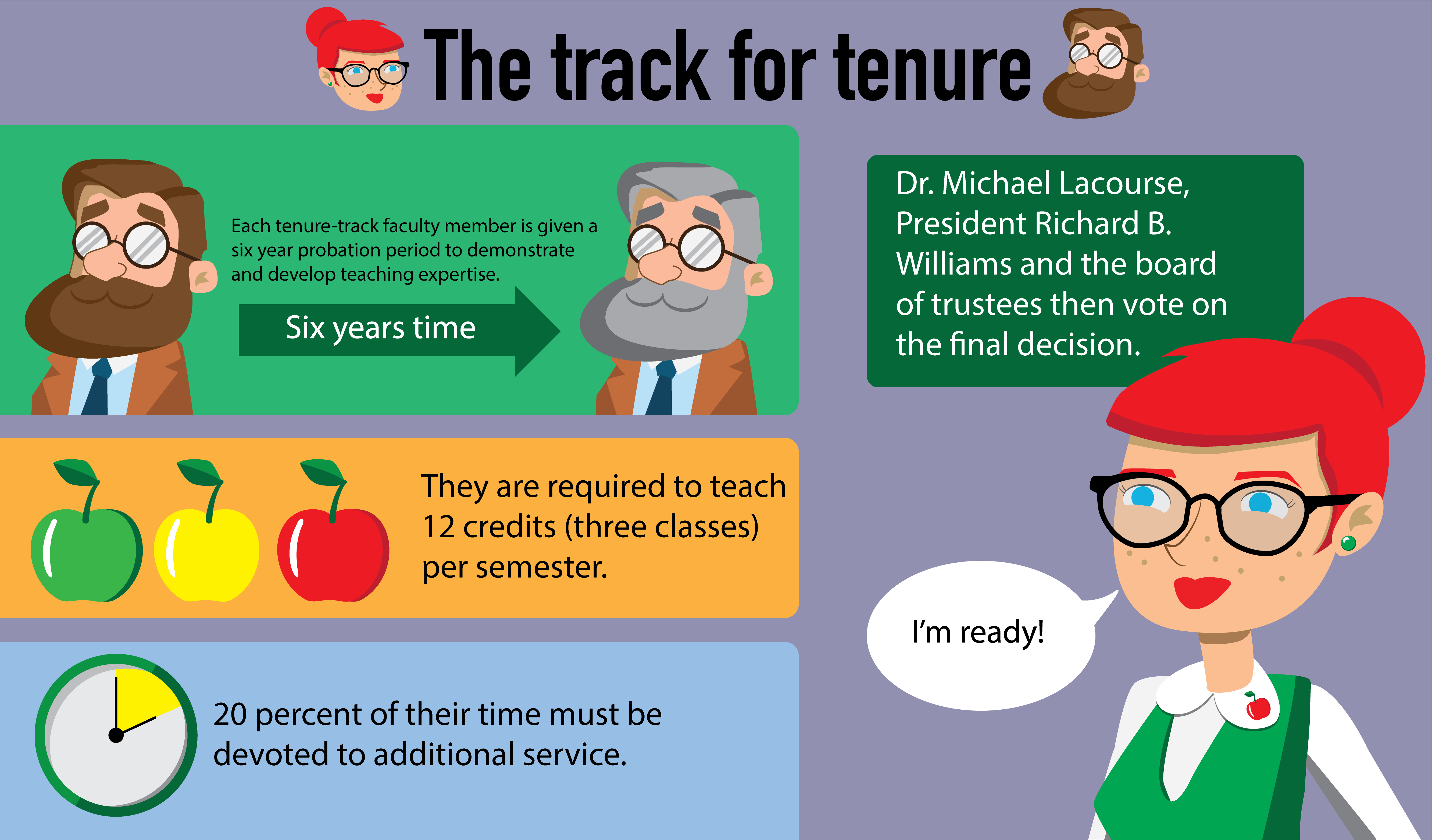Each year, Dixie State University tenure-track faculty and professional librarians are granted tenure after applying and proving themselves for six years.
Each tenure-track faculty member hired is given a six year probation period to demonstrate and develop teaching expertise.
Dr. Michael Lacourse, provost and vice president of academic affairs, said tenure is a right that protects permanent faculty who show evidence of potential for effectiveness. That evidence may include prior teaching experience, effective communication and evidence of expertise in their field. Although DSU doesn’t emphasize research and scholarship, scholarly publications or creative works are taken into consideration.
“Currently in our policies we don’t have a requirement [for scholarly or creative activity]…but when we’re hiring somebody, that’s one more indication of their professional expertise,” Lacourse said.
Tenure-track faculty are reviewed after three and six years of being at DSU by the Faculty Review Committee, a committee of nine tenured faculty members who evaluate faculty for tenure and promotions.
“Tenure-track faculty are required to teach the equivalent of 12 credits per semester, and required to do additional service, which is about 20 percent of their time,” Lacourse said.
Curt Walker, chairman of the Faculty Review Committee, said after the committee receives e-portfolios from faculty, each committee member individually reviews the portfolios for strengths and areas of improvement. The committee then discusses and votes to recommend tenure. Walker said most reviewed faculty are recommended; roughly three of 40 faculty were not recommended last year for either promotion or tenure.
The committee looks for several things when reviewing faculty: service to the campus and community, scholarly works, evidence of good teaching, peer evaluations, superior evaluations and student evaluations.
“We’re a teaching institution, so the first thing I always look for is evidence of good teaching,” Walker said. “It’s the faculty member’s responsibility to show evidence.”
Walker said student evaluations are critical as they are evidence of the faculty’s effectiveness.
“Students always think they’re just not important at all, but they really are,” Walker said. “They really weigh a lot in whether or not [faculty] keep their job.”
After reviews, the committee recommends faculty members for tenure, and their e-portfolios get reviewed and discussed by Lacourse, President Richard B. Williams and the board of trustees, who then vote on the final decision.
Lacourse said already tenured faculty undergo occasional reviews to demonstrate continuation of excellence, although incentivising long-term faculty to continue with their original degree of enthusiasm may be problematic.
“People who are in the tenure process are usually performing at a very high level because they want to achieve tenure, so how do we sustain that?” Lacourse said.
David Zielke, tenured librarian, technical services and member of the Faculty Review Committee, said tenured faculty are valuable parts of DSU because they epitomize innovativeness, creativity and commitment in their teaching. He said tenure-track faculty should always be willing to improve and modify their teaching styles as times change.
“Students should expect professionalism [from the faculty],” Zielke said. “They should expect respect and desire to teach well, and to involve and integrate the student into the curriculum so that [students] feel they are being immersed into that which they are trying to learn.”
Lacourse said tenure may be revoked and tenured faculty may be terminated from their positions due to violation of faculty policy and of the law.



